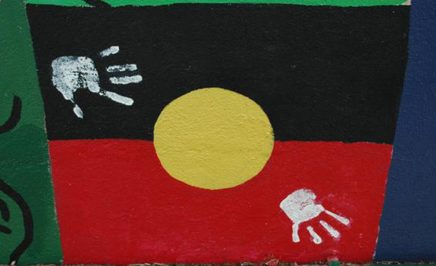The Senate must stand firm against racism and vote down proposed changes to section 18C of the Racial Discrimination Act when it meets today, said Amnesty International, and Prime Minister Turnbull should definitively put the harmful debate to rest.
“The overwhelming message from eight out of 10 Australian voters and from the bipartisan Freedom of Speech Inquiry is that our race-hate protections should stay as they are. Prime Minister Turnbull must heed this message and put this issue to bed once and for all,” said Roxanne Moore, Indigenous Rights Campaigner at Amnesty International Australia.
A new Fairfax-Ipsos poll today has found that 78% of voters do not want to legalise speech that offends, insults or humiliates on the basis of race or ethnicity.
Last month the bipartisan Freedom of Speech Inquiry, after a thorough process that received thousands of submissions, did not recommend any changes to sections 18C and 18D of the Racial Discrimination Act.
“The message is clear from voters of all stripes: racism is not wanted here,” said Roxanne Moore.
“Now it’s time to stop tearing communities apart, and move forward together as a nation.”
Chilling effect
Changes which must be rejected by the Senate include a proposed new standard of “reasonableness”.
Currently, conduct is judged as insulting, offensive, humiliating or threatening according to the standard of a reasonable or average person of the particular cultural or ethnic group being targeted.
The government has proposed replacing this test with one where the reasonable person is a member of the general Australian community – a community which for the majority does not suffer the impacts of racism.
Amnesty International also is concerned that changes to costs could have a chilling effect on persons affected by any form of unlawful discrimination from engaging in the conciliation process and bringing claims in court for unlawful discrimination.
For example, Aboriginal and Torres Strait Islander communities are deeply impacted by racism but also experience severe financial disadvantage. These changes could limit access to justice for disadvantaged communities who experience racism, or discrimination based on their age, sex or disability.
Limiting access to justice
Senators should also be concerned about proposed time limitations on complaints limiting access to justice for people who experience unlawful discrimination.
The proposed six month time limitation, down from 12 months, could significantly impact vulnerable communities who need the most assistance in both understanding and exercising their legal rights and obtaining legal representation.
These include such as linguistically diverse communities, people with disabilities, Indigenous people in remote communities and financially disadvantaged communities.




